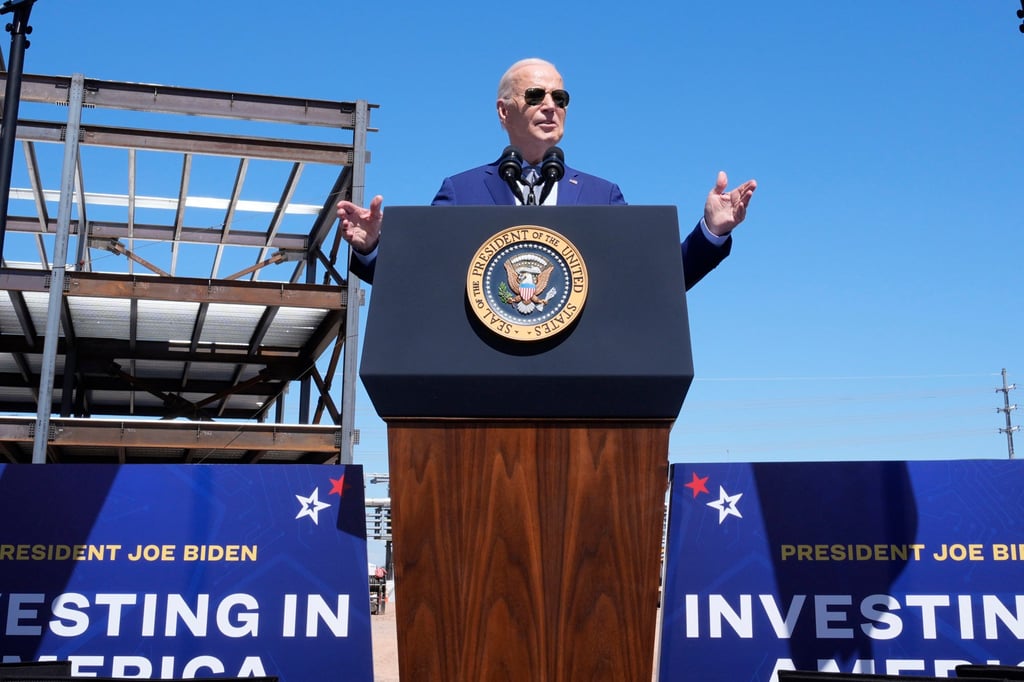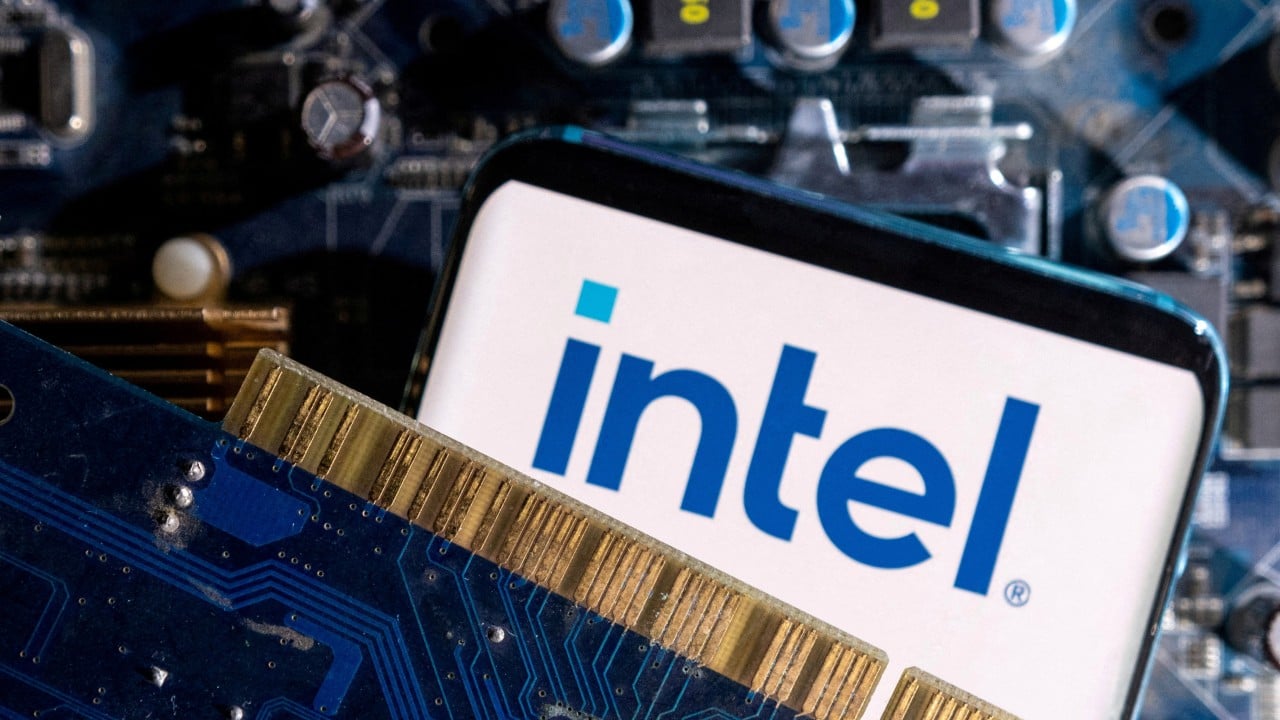The Biden administration has finalised a deal to give Intel nearly US$7.9 billion in federal grants, the largest direct subsidy from a programme to boost domestic semiconductor manufacturing.
Advertisement
The agreement for the struggling chipmaker, smaller than an earlier proposed award, means that Intel can begin receiving funds as it hits negotiated benchmarks on projects in four US states. The company will qualify for at least US$1 billion this year, a senior administration official said, based on milestones it has already reached.
Specifically, Intel will get money for projects in Arizona, Oregon and New Mexico, according to a person familiar with the matter, who asked not to be named as the details are not public. The company’s greenfield site in Ohio, which has been delayed by several years, is not yet eligible for any federal support, the person said, though it has already received US$2 billion from the state.
Wrapping up talks has been a top priority for Intel, which has spent months trying to convince Wall Street and Washington that it can execute on a massive manufacturing expansion despite deep financial struggles and years of technological blunders. It’s also an important step for President Joe Biden’s administration, which is trying to insulate its industrial policy initiatives from potential changes under president-elect Donald Trump.
Intel’s award will result in “American-designed chips being manufactured and packaged by American workers, in the United States, by an American company, for the first time in a very long time,” said Commerce Secretary Gina Raimondo, whose agency is in charge of implementing the 2022 Chips and Science Act. The landmark bipartisan law set aside US$39 billion in grants, US$75 billion in loans and loan guarantees, and 25 per cent tax credits to revitalise American chipmaking.

Trump has criticised the chips programme as “so bad” and Republican colleagues have threatened to revise – or even repeal – the legislation. The risk that the new administration could overhaul the effort after they take office in January prompted the Commerce Department to accelerate their work, seeking to wrap up as much of the negotiations with Intel, Taiwan Semiconductor Manufacturing Co. and other companies as soon as possible.

